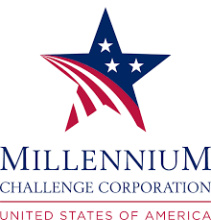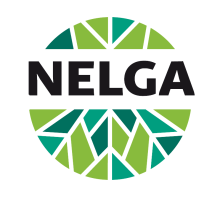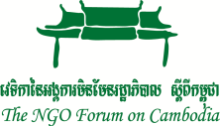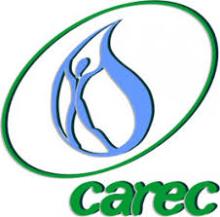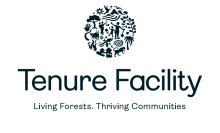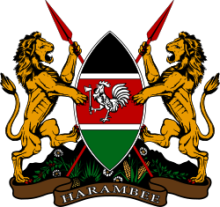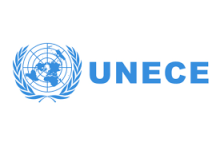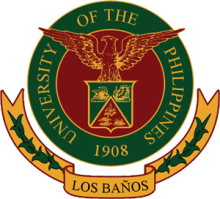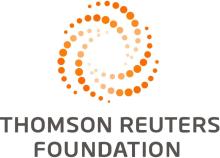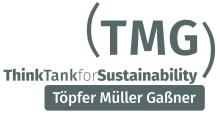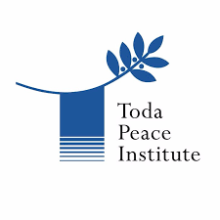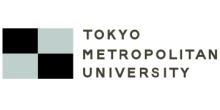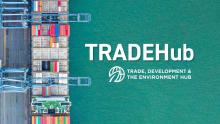A Biblioteca Land Portal inclui recursos de mais de 1.890 provedores de informações nacionais e internacionais. Saiba mais sobre as organizações e instituições que utilizam o Land Portal para partilhar as suas pesquisas, dados e histórias de acesso aberto.
The Law Library of Congress
The Library of Congress is the largest library in the world, with millions of books, recordings, photographs, newspapers, maps and manuscripts in its collections. The Library is the main research arm of the U.S. Congress and the home of the U.S. Copyright Office.
The Library preserves and provides access to a rich, diverse and enduring source of knowledge to inform, inspire and engage you in your intellectual and creative endeavors. Whether you are new to the Library of Congress or an experienced researcher, we have a world-class staff ready to assist you online and in person.
I encourage you to visit the Library of Congress in person in Washington, D.C., explore the Library online from wherever you are and connect with us on social media.
The League for Pastoral Peoples and Endogenous Livestock Development
The League for Pastoral Peoples was founded in 1992 to provide relief in an acute crisis experienced by Raika camel pastoralists in India. Its initial mandate was to support pastoral societies and other small-scale livestock keepers to pursue their own vision of development through research, technical support, advisory services and advocacy.
The Millennium Challenge Corporation
The Millennium Challenge Corporation (MCC) is an innovative and independent U.S. foreign aid agency that is helping lead the fight against global poverty.
Created by the U.S. Congress in January 2004 with strong bipartisan support, MCC has changed the conversation on how best to deliver smart U.S. foreign assistance by focusing on good policies, country ownership, and results. MCC provides time-limited grants promoting economic growth, reducing poverty, and strengthening institutions. These investments not only support stability and prosperity in partner countries but also enhance American interests. With cost-effective projects, a lean staff, and an evidence-based approach, MCC is a good investment for the American people.
The Mirror (Kyemon)
Kyemon (Burmese: ကြေးမုံ; also known as Kyaymon) (The Mirror) is a state-owned Burmese-language daily newspaper based in Yangon, Myanmar. Along with Myanmar Alin, Kyemon is one of two Burmese language national newspapers in the country. Kyemon tends to carry more human interest stories whereas Myanmar Alin is more geared towards publishing government propaganda.
The Myanmar Times
The Myanmar Times (Burmese: မြန်မာတိုင်း(မ်); MLCTS: mran ma: tuing: [mjànmá táɪn]), founded in 2000, is the oldest privately owned and operated English-language newspaper in Myanmar. The Myanmar Times published weekly English and Burmese-language news journals until March 2015, when the English edition began publishing daily, five days per week.
The National Assembly of the Kingdom of Cambodia
The National Assembly (Khmer: រដ្ឋសភា; Rotsaphea) is one of the two houses (chambers) of the Parliament of Cambodia. It is referred to as the lower house, with the Senate being referred to as the upper house.
The National Assembly is an elected body consisting of 123 members known as Members of Parliament (MPs). Members are elected for five-year terms by proportional representation, using provinces as constituencies of 1 to 18 members, and the D'Hondt method of seat distribution. A political party must secure 62 seats to obtain and preserve a majority.
The National Assembly is headed by the President.
Source: Wikipedia (d.d. December 8th 2017)
The National Commission for Women
The National Commission for Women was set up as statutory body in January 1992 under the National Commission for Women Act, 1990 ( Act No. 20 of 1990 of Govt.of India ) to :
-
review the Constitutional and Legal safeguards for women ;
-
recommend remedial legislative measures ;
-
facilitate redressal of grievances and
-
advise the Government on all policy matters affecting women.
In keeping with its mandate, the Commission initiated various steps to improve the status of women and worked for their economic empowerment during the year under report. The Commission completed its visits to all the States / UTs except Lakshdweep and prepared Gender Profiles to assess the status of women and their empowerment. It received a large number of complaints and acted suo-moto in several cases to provide speedy justice. It took up the issue of child marriage, sponsored legal awareness programmes, Parivarik Mahila Lok Adalats and reviewed laws such as Dowry Prohibition Act, 1961, PNDT Act 1994, Indian Penal Code 1860 and the National Commission for Women Act, 1990 to make them more stringent and effective. It organized workshops / consultations, constituted expert committees on economic empowerment of women, conducted workshops / seminars for gender awareness and took up publicity campaign against female foeticide, violence against women etc. in order to generate awareness in the society against these social evils.
The Nature Conservancy
The Nature Conservancy is the leading conservation organization working around the world to protect ecologically important lands and waters for nature and people.
We address the most pressing conservation threats at the largest scale. Thanks to the support of our more than 1 million members, we’ve built a tremendous record of success since our founding in 1951:
- We've protected more than 119 million acres of land and thousands of miles of rivers worldwide — and we operate more than 100 marine conservation projects globally.
- We are impacting conservation in 69 countries — protecting habitats from grasslands to coral reefs, from Australia to Alaska to Zambia. See where we work.
- We address threats to conservation involving climate change, fresh water, oceans, and conservation lands. Learn how we're responding.
The Network of Excellence on Land Governance in Africa
Weak land governance and insecure land rights are still major development challenges for Africa. The African Land Policy Centre (ALPC), formerly Land Policy Initiative (LPI), has been mandated to spearhead the implementation of the African Union’s Agenda on Land that aims at improving land policy in a regional context.
Although a growing number of countries show political will to realize these initiatives, their implementation at country level remains at an early stage. Many countries lack the human and institutional capacity required to implement sustainable land policies. One of the main reasons for this lack is the insufficient quality of academic programmes at African universities and institutions of higher learning.
NELGA
To strengthen human and institutional capacities for the implementation of the AU agenda on land, ALPC has established a Network of Excellence on Land Governance in Africa (NELGA) in cooperation with Germany, World Bank and other partners.
NELGA is a partnership of leading African universities and research institutions with proven leadership in education, training and research on land governance. Currently NELGA has more than 50 partner institutions across Africa.
Objectives of NELGA
- Enhancing training opportunities and curricula on land governance in Africa;
- Promoting demand driven research on land policy issues;
- Connecting scholars and researchers across Africa through academic networks;
- Creating data and information for monitoring and evaluation on land policy reforms.
Key functions of NELGA
- Improve land-related curricula in graduate and post-graduate training courses in quantity and quality.
- Provide and facilitate academic education and training for African land professional and practitioners.
- Define an agenda for research and conduct applied research on land related issues pertinent to the AU agenda on land.
- Develop a repository for data, indicators and information, in close cooperation with the ALPC, the RECs and governments.
- Promote knowledge management, dissemination and networking in support of land policy and governance in Africa by enhancing the community of practice for land policy experts.
- Develop a repository for data, indicators and information, in close cooperation with the ALPC, the RECs and governments.

The NGO Forum on Cambodia
About NGOF
NGO Forum on Cambodia works to improve life for poor and vulnerable people in Cambodia. It is a membership organisation that builds NGO cooperation and capacity, supporting NGO networks and other civil society organizations to engage in policy dialogue, debate and advocacy.
The goal of NGO Forum is that the rights of the poor and vulnerable are recognized and supported by the policies and practices of Cambodia’s government and development partners, and the wider community.
Vision
NGO Forum’s vision is that well-informed citizens and civil society organisations in Cambodia positively influence pro-poor, equitable and sustainable development, supported by a transparent and accountable government.
Mission
NGO Forum’s mission is to coordinate and resource members and networks of NGOs in engaging in policy dialogue, debate and advocacy with and for poor and vulnerable people in Cambodia.
Goal
NGO Forum’s overall goal is to ensure that citizens and civil society organisations are well-equipped to contribute and influence policy making and implementation processes for the benefit of poor and vulnerable people of Cambodia.
The Other Media
The Other Media was established in 1992 as a Center for supporting people’s organisations and movements in India include providing campaigns, advocacy, communications, research, training and scientific support to and mobilising solidarity for community struggles against injustice. It also strives to bring together civil society groups on to common platforms on the basis of shared concerns for human rights, peace and justice including environmental justice. It helps the communities to articulate their democratic spaces and demands for rights and justice through joint campaigns in public and judicial fora, and use conventional and social media to support on the ground struggles. Since the time of inception, The Other Media has focused on a spectrum of social and environmental justice issues in India. The rights of indigenous peoples, the identity-based aspirations of communities in Northeast and Kashmir, refugee crisis involving Burmese escaping Myanmar’s military junta, gender justice and religious freedom. Over time, it also served as a centre of New Delhi-based support for initiatives like the Pakistan India People’s Forum for Peace and Democracy, the National Fishworkers’ Forum and the Campaign for Justice in Bhopal.
The Phnom Penh Post
A history that stretches back more than 20 years has made the Phnom Penh Post the ‘Newspaper of Record’.
In fact the Phnom Penh Post is the oldest existing independent newspaper in any language in Cambodia.
First published in July 1992, the Post is read by thousands of foreigners and Cambodians throughout the country and by subscribers in 35 countries around the globe.
For more than 15 years the Phnom Penh Post has been the paper of record on Cambodian current events – read by decision makers and consumers who have helped rebuild the nation during the past decades.
No other newspaper can lay claim to such an extensive record. The Phnom Penh Post presents its readers with information and analysis that is convincing, useful and unique.
The Phnom Penh Post readers are also the most highly educated in the country and demand access to the highest quality information possible.
Our team of editors and journalists know that simply reporting the facts is not enough: they must analyze them and explain to readers how these facts will shape and affect their lives.
The Regional Environmental Centre for Central Asia
The Regional Environmental Centre for Central Asia (CAREC) is an independent, non-political and non-for-profit international organisation with regional mandate to assist the Central Asian governments, regional and international stakeholders in addressing environmental and sustainability challenges across Central Asian region and Afghanistan.
By promoting dialogue and collaboration among all environmental stakeholders, CAREC has today become a leading regional knowledge hub in the field of environment and sustainable development recognised by national, regional and international partners.
CAREC was established in 2001 by a joint decision of all five Central Asian states (Kazakhstan, Kyrgyzstan, Tajikistan, Turkmenistan and Uzbekistan), European Union and UNDP, following the resolution of the IV Pan-European Conference held in 1998, Aarhus (Denmark).
The Rural Sociological Society
|
The RSS is a professional social science association that promotes the generation, application, and dissemination of sociological knowledge. The Society seeks to enhance the quality of rural life, communities, and the environment. This website is intended to serve all those interested in rural people and places. We seek and support a diverse and international membership of academics and practitioners who share our interests in rural people and places. What We Do The core activities of the Rural Sociological Society are our peer-reviewed journal, Rural Sociology, our annual conference, and support for communities of scholars concerned with specific rural topics. Through these activities, the RSS has provided leadership in scholarship, policies, and advocacy. Since its founding in 1937, the RSS has traced changes in rural life and livelihoods, demography, community structures and economies, technologies, environmental conditions, and agriculture and food systems. Shared Values at the Rural Sociological Society In these politically turbulent times we wish to share with others the core values that we believe animate and organize our activities as members and leaders of the Rural Sociological Society (RSS). We believe in the free expression of ideas, in civil discourse and mutual respect among participants, and in the value of scientific research without political considerations. We oppose actions and words that demean, exclude, and otherwise marginalize individuals and groups of different genders, races, identities, sexual orientations, and national origins. We seek to assist vulnerable and marginalized peoples wherever they may be. |
The Samdhana Institute
The Samdhana Institute - An Asian Center for Social and Environmental Renewal
Our Purpose
The Samdhana Institute works to:
- Offer opportunities as well as support for individuals and groups to remove themselves from their immediate environment and reflect upon and communicate their experience and ideas.
- Enhance and enrich understanding of innovative approaches to sustainable resource management and broaden options for local communities.
- Support efforts to increase understanding, development and implementation of appropriate methods for conflict management and mediation, with a focus on conflict over access to and management of natural resources.
- Facilitate individual, inter-group and community learning and skills sharing.
- Provide small grants for community members, groups, their partners and support organizations to implement key activities related to these purposes.
Today, with a growing network of fellows, Samdhana assists in environmental conflict and mediation support and helps local organizations to reflect upon on their approaches to: i) problem identification and strategic planning ii) leading change processes iii) monitoring and assessment and iv) reflection upon effectiveness. The Samdhana approach is to have Fellows work closely with partners over time and during critical periods in program development.
Samdhana further provides space at its retreat centers for local groups and networks to come together to reflect upon and share their experiences and perhaps most important, to rest. These gatherings are organized by Fellows who specialize in facilitation and retreat. When reflection is the priority, the learning is captured and shared at local and international levels. Individual retreats or sabbaticals are also welcome and are custom designed.
The Sentry
The Sentry is an investigative and policy organization that seeks to disable multinational predatory networks that benefit from violent conflict, repression, and kleptocracy.
The Tenure Facility
The International Land and Forest Tenure Facility is focused on securing land and forest rights for Indigenous Peoples and local communities. We are the first financial mechanism to exclusively fund projects working towards this goal while reducing conflict, driving development, improving global human rights, and mitigating the impacts of climate change. We provide funding at scale directly to communities and their partners; build relationships with key actors within government and the private sector, and provide the technical expertise required to implement tenure rights within existing laws and policy.
The Truth, Justice and Reconciliation Commission of Kenya
The Truth, Justice and Reconciliation Commission of Kenya (TJRC) was established in 2008. Kenya’s modern history has been marked not only by liberation struggles but also by ethnic conflicts, semi-despotic regimes, marginalization and political violence, including the coup d'état of 1982, the Shifta War, and the 2007 Post-election violence
The United Nations Economic Commission for Europe
Mission
The United Nations Economic Commission for Europe (UNECE) was set up in 1947 by ECOSOC. It is one of five regional commissions of the United Nations. The others are the :
- Economic Commission for Africa (ECA),
- Economic and Social Commission for Asia and the Pacific (ESCAP),
- Economic Commission for Latin America and the Caribbean (ECLAC),
- Economic and Social Commission for Western Asia (ESCWA).
UNECE's major aim is to promote pan-European economic integration. UNECE includes 56 member States in Europe, North America and Asia. However, all interested United Nations member States may participate in the work of UNECE. Over 70 international professional organizations and other non-governmental organizations take part in UNECE activities.
UNECE's terms of reference have been defined by ECOSOC.
As a multilateral platform, UNECE facilitates greater economic integration and cooperation among its member countries and promotes sustainable development and economic prosperity through:
- policy dialogue,
- negotiation of international legal instruments,
- development of regulations and norms,
- exchange and application of best practices as well as economic and technical expertise,
- technical cooperation for countries with economies in transition.
UNECE contributes to enhancing the effectiveness of the United Nations through the regional implementation of outcomes of global United Nations Conferences and Summits. It gives focus to the United Nations global mandates in the economic field, in cooperation with other global players and key stakeholders, notably the business community.
UNECE also sets out norms, standards and conventions to facilitate international cooperation within and outside the region.
The University od Edinburgh
Our graduates, and the knowledge we discover with our partners, make the world a better place.
As a world-leading research-intensive University, we are here to address tomorrow’s greatest challenges. Between now and 2030 we will do that with a values-led approach to teaching, research and innovation, and through the strength of our relationships, both locally and globally.
The University of the Philippines Los Baños
The University of the Philippines Los Baños (UPLB), a coeducational publicly funded academic, research and extension institution, is one of the eight constituent universities of the University of the Philippines System
Thomson Reuters Foundation
The Thomson Reuters Foundation was created to advance and promote the highest standards in journalism worldwide through media training and humanitarian reporting.
For over three decades, we have been informing, connecting and empowering people around the world through our free programmes and services.
We support our work through a combination of core annual donation from Thomson Reuters , other donations and sponsorships, through external funding from other organisations as well as grants specifically dedicated to supporting our core programmes.
Tibetan Centre for Human Rights & Democracy
Tibetan Centre for Human Rights and Democracy (TCHRD) is a registered non-governmental human rights organisation established in January 1996 in Dharamsala (India) with the mission to protect the human rights of the Tibetan people in Tibet and promote the principles of democracy in the exile Tibetan community.
The centre is entirely run and staffed by Tibetans in exile. The centre’s all-Tibetan staff recognize the reality of living under occupation, of being born in exile and of having that access to provide accurate, up-to-date insights into life in occupied Tibet. The centre enjoys direct and immediate access to information from Tibetan refugees escaping Tibet via Nepal to Dharamsala.
Our work entails monitoring, researching, translating and exposing human rights violations to the international community, thereby making China answerable for their consolidation of control over Tibet through repression. The centre conducts regular, systematic investigation of human rights situation in Tibet and monitors human rights policies of the People’s Republic of China (PRC). Every year, we bring out annual report, thematic reports, testimonies of victims of human rights violations, biweekly newsletters, press releases and briefings on human rights issues that confront Tibetans inside Tibet.
The centre engenders awareness on a wide range of issues relating to human rights and democracy through both grassroots and diplomatic means, using both the infrastructure of regional and international institutions as well as community based awareness campaigns. TCHRD attends the annual sessions of UN Human Rights Council as well as other regional, national and international conferences. Such participation is aimed at highlighting human rights situation in Tibet and lobbying and networking on the promotion and protection of human rights in Tibet. In keeping with our goal to make China a responsible international member, the centre actively engages with the UN human rights mechanism and special procedures submitting reports and cases of specific human rights violations in Tibet.
In an effort to engender a culture of human rights and democratic practices among Tibetans, the centre organises workshops, talk series, public discussions and campaigns every year for students, activists, grassroots leaders, etc. The centre also launches various campaign activities of national and international scope on specific human rights advocacy issues.
His Holiness the Dalai Lama is the patron of TCHRD. The international advisory board is comprised of prominent personalities from around the world. The centre functions under the auspice of a Board of Directors consisting of seven to twelve members from various sectors of society who act as trustees of the Centre. The Executive Director, as the principal executive officer, oversees the entire responsibility of the centre.
Tierras Mal Habidas
Campaña Tierras Mal Habidas
Millones de hectáreas de las mejores tierras fiscales del Paraguay fueron apropiadas ilegalmente por personas particulares, sociedades e instituciones. Un informe de la Comisión de Verdad y Justicia que investigó las violaciones de Derechos Humanos cometidas durante la dictadura de Alfredo Stroessner, sumó casi 8 millones de hectáreas robadas entre 1954 y 2003. Muchas más fueron robadas antes, y siguen siendo robadas hasta hoy.
Esos millones de hectáreas de tierra deberían haberse destinado para que campesinas y campesinos del Paraguay pudieran vivir dignamente y producir los alimentos que todos y todas consumimos, tal como disponían los marcos legales vigentes.
Hoy nuestra producción de alimentos no abastece la demanda, e “importamos”, legal o ilegalmente, hasta la cebolla necesaria para la sopa paraguaya. Incluso la harina de maíz que consumimos en la actualidad ya proviene probablemente de cultivos transgénicos, en muchos casos, negocio de los mismos que se apropiaron de la tierra.
Cuando estas tierras vuelvan a estar en manos de la nación paraguaya, y nuestros compatriotas produzcan en ellas, volveremos a gozar de soberanía alimentaria. Los alimentos serán más baratos, más variados y de mejor calidad. Más gente estará trabajando dignamente, y habrá menos familias dispersas por la migración.
Las tierras adquiridas ilegalmente, tienen un precio alto y las estás pagando vos.
Sumate y reclamá. Pidamos todos y todas a las autoridades que las tierras malhabidas sean recuperadas, y destinadas a familias paraguayas, para producir alimentos.
Completá tus datos y mandá la carta Aquí.
La campaña tiene un sitio web con información sobre las “tierras malhabidas” y relatos de casos específicos de esas expropiaciones. La información del sitio menciona que “un informe de la Comisión de Verdad y Justicia que investigó las violaciones de Derechos Humanos cometidas durante la dictadura de Alfredo Stroessner, sumó casi 8 millones de hectáreas robadas entre 1954 y 2003”.
El sitio para sumarse a la campaña: http://www.tierrasmalhabidas.com.py/
TMG-ThinkTank for Sustainability
At TMG — Töpfer, Müller, Gaßner — Think Tank for Sustainability, we work to empower sustainability transformations by building bridges between different knowledge holders and connecting various communities of practice. As an independent partner, TMG works with academia, governments, the private sector and civil society to examine entrenched sustainability challenges, identify new opportunities and initiate innovative solutions for the implementation of international sustainable development agendas.
TMP Systems
TMP Systems is a boutique consultancy based in the United Kingdom, with staff in the United States and the Philippines. Our work spans asset management, commercial investment systems design in carbon, energy and land use and environmental, social and governance diligence.
We draw on our team’s comprehensive systems architecture, technology and sustainability experience in developed and emerging markets to solve complex problems in these sectors. The solutions we provide depend on the problems we are called on to address; examples are available above under our three business lines: Asset Management, Climate & Ecosystems and Economic Development.
Our client base stretches from the United States and Europe to Brazil, Indonesia and Kenya and includes asset managers, governments, research institutions, foundations and civil society organizations. References are available upon request. Our asset management work is protected under confidentiality agreements, but anonymized samples can be provided where appropriate.
Toda Peace Institute
Vision
The Toda Peace Institute mission is to promote a nonviolent, sustainable and peaceful world, by pursuing the following four visions:
1. To nurture and develop regional and global institutions, mechanisms and programmes capable of reasserting cooperative security principles to advance national and human security and guarantee stable peace.
Global, economic, political, and security threats (such as political extremism, poverty, cyber insecurity, weapons of mass and minor destruction, environmental degradation, arms racing, health pandemics, humanitarian crises, inequality, violence, and war) are all interconnected. They cannot be dealt with satisfactorily at the level of the nation state. It is vital, therefore, to reactivate the principles of common and cooperative security as guides to developing effective regional and global responses to national, regional and global challenges. The Toda Peace Institute will initiate research on the relevance of these principles in relation to 21st century threats and organise meetings with defence and security professionals in Asia, Europe and North America to ascertain whether ideas of common and cooperative security might provide useful collective solutions to contemporary security dilemmas. We will continue to work in collaboration with key experts and relevant organisations on WMD security and their abolition, arms control and disarmament, and non-offensive defence policies. We will do so while supporting UN reform and the development of regional peace and security mechanisms to advance cooperative security. Human security outcomes will be the litmus test of progress on these issues. These goals will be accompanied by research and regional workshops aimed at strengthening pre- and post-conflict peacebuilding processes in the Asia-Pacific region as these are key preventive elements in removing some of the root causes of violence and war.
2. To understand and promote environmental security alongside sustainable and just development in order to protect peoples against the negative impacts of climate change, socio-economic fragility and conflict.
With a growing number of climate change skeptics assuming power in North America and elsewhere there is a high probability that progress on climate change will be slowed or reversed. This is likely to have extremely negative consequences on stressed and vulnerable eco-systems and will pose a major challenge to life, wellbeing and peaceful relations on a global scale. The Toda Peace Institute will lever its resources to work with expert partners on exploring the nature of the relationships between climate change, poverty, political instability, socio-political tensions and conflict. In particular we will work with individuals and communities affected by climate change in the Asia-Pacific region, so that they might respond and adapt to environmental challenge in ways that improve the conditions for peace, and reduce the risk of violent conflict. This programme will be aimed at synthesising existing primary and secondary research on these issues and then working in partnership with civil society and academic partners to share wisdom with national, regional and international decision-makers so that policies and programmes on climate change will be progressive, conflict sensitive and supportive of peaceful dynamics.
3. To build stable peace in Northeast Asia.
Over the past years the Toda Peace Institute has organised a series of interactive Track 1.5 problem solving workshops aimed at identifying impediments to stable peace between China, Japan and the two Koreas. These have been aimed at dealing with national identity issues as well as painful historic memories which have a capacity to sabotage harmonious and peaceful relationships between all three countries.
In recent years, attention has been paid to an analysis of the pros and cons of changes to the Japanese Pacifist Constitution; the negative consequences of arms racing and competitive military expenditure in the region and most recently, ways of ensuring that tensions and conflicts between North and South Koreas and the United States might be resolved through conflict prevention, preventive diplomacy and negotiated solutions to perceived threat. There has also been a focus on the development of regional security mechanisms/architecture within which bilateral and trilateral disputes might be resolved peacefully.
4. To explore and expand the theory and praxis of nonviolence to address, prevent and transform direct and indirect violence within Asia and the rest of the world.
In the face of growing atavistic nationalism, challenges to democracy and the rule of law, increased protectionism and the resurgence of national as opposed to cooperative security interests around the world, the Toda Peace Institute will promote research policies and programmes aimed at inclusion, cooperation, human security and cosmopolitan internationalism. We will initiate conversations between leaders of nonviolent social and political movements resisting human rights violations and conflict management/resolution/transformation actors and practitioners. By working with scholars and practitioners drawn from both the nonviolence and conflict transformation worlds, we will identify areas of commonality and difference, assess their different impacts and effectiveness and explore ways in which their interests might be combined to create conditions conducive to peace, justice and global order. It will focus work on the development of civil society capacities within the Asia Pacific region while keeping a watchful eye on comparable developments in other parts of the world. This programme will involve, regional as well as global research and training programmes. An important aim of this theme is the protection of the democratic project in the face of authoritarian tendencies and violent extremism all around the world.
Tokyo Metropolitan University
Tokyo Metropolitan University’s mission is “to pursue the vision of an ideal human society in a metropolis.” Based on this mission, our basic philosophy is to give instruction and conduct research in a broad range of knowledge and in highly specialized sciences, and then, through collaboration with industry and educational and research institutions, etc., to produce education and research results that are relevant to large cities, to nurture students rich in humanity and creativity, and to contribute to the improvement and development of human society.
Trade & Industrial Policy Strategies
Trade & Industrial Policy Strategies (TIPS) is an independent, non-profit, economic research institution based in Pretoria, South Africa. It was established in 1996 to support economic policy development, with an emphasis on industrial policy, in South Africa and the region.
TIPS has three main areas of work: trade and industrial policy; inequality and economic inclusion; and sustainable growth.
TIPS’s main objectives are to undertake in-depth economic analyses, especially at the industrial level; to provide quality research as the basis for improving industrial policy as well as broad economic development strategies; and to support an increasingly dynamic and evidence-based discourse on industrial policy and inclusive growth with academics, other researchers and stakeholders.
TIPS offers high-quality quantitative and qualitative research, project management, dialogue facilitation, capacity building a knowledge sharing. TIPS undertakes commissioned research, as well as policy papers and think pieces around industrial policy and economic development.
TIPS has more than 20 full-time staff members and works with a network of expert researchers and institution partners across South Africa and the world. Its activities are overseen by a Board of Directors comprising individuals involved in high-level policy formulation in South Africa. TIPS also has a Members Group that includes policymakers and researchers from across South Africa, which provides intellectual guidance and support for the organisation.
TIPS is committed to the growth a development of future economic researchers and operates a substantial intern and young economist development programme in-house.
Trade, Development and the Environment Hub
The world’s leading experts have predicted that a million species are now threatened with extinction, and that ‘the direct exploitation of organisms’ is the second biggest cause of wildlife loss around the world.
While trade in natural and agricultural goods has long been a key part of economic growth, removing too many wild animals or plants can cause populations to decline and ultimately crash. Clearing land for crops also removes important habitat for wildlife and threatens water, air and soil.
This degradation of the environment, including wildlife affects everybody. Many rural communities rely directly on surrounding nature for their livelihoods. Clearing lands for commercial farming, which may only benefit a few people for a short time, can therefore leave very little for local people to live on.”. Globally, deforestation also releases greenhouse gases, accelerating the climate crisis all over the world and reducing the environment’s ability to bounce back after extreme weather events. And whether you live in a rural or urban environment, we all depend on a thriving, diverse natural world for clean drinking water, pest and disease control, pollination of crops and food and raw materials.
To protect our natural environment and support human development, we must take steps to make trade more sustainable.


